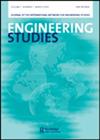Teaching students to collaborate with communities: expanding engineering education to create a sustainable future
IF 1.3
3区 工程技术
Q2 EDUCATION, SCIENTIFIC DISCIPLINES
引用次数: 1
Abstract
Engineers are crucial to solving the world’s most pressing challenges, but they cannot do it alone. Creating new and more just systems that support people and planet requires that engineers learn to engage with diverse stakeholders as equal partners. This article shares how the Serve-Learn-Sustain (SLS) initiative at the Georgia Institute of Technology has been introducing new approaches to problem-solving into engineering and technology-focused education to better prepare students to address the sustainability challenges of our moment, in collaboration with community partners, especially those from historically marginalized communities of color. To do this, SLS focuses on de-centering academic expertise and positioning community partners as experts, innovators, and co-educators. The activities and impacts described here, including course-based collaborations with community partners and co-curricular social innovation programs, have implications for other higher education institutions that recognize the importance of partnering with communities to prepare students to use their education to effect change.教导学生与社区合作:拓展工程教育,创造可持续发展的未来
工程师对于解决世界上最紧迫的挑战至关重要,但他们无法独自完成。创建支持人类和地球的新的、更公正的系统需要工程师学会与不同的利益相关者作为平等的伙伴进行接触。这篇文章分享了佐治亚理工学院的“服务-学习-维持”(SLS)计划是如何将解决问题的新方法引入以工程和技术为重点的教育中,通过与社区合作伙伴,特别是那些历史上被边缘化的有色人种社区的合作,让学生更好地准备好应对我们这个时代的可持续性挑战。为了做到这一点,SLS的重点是去中心化学术专业知识,并将社区合作伙伴定位为专家、创新者和共同教育者。这里描述的活动和影响,包括与社区合作伙伴的课程合作和课外社会创新项目,对其他高等教育机构具有启示意义,这些机构认识到与社区合作的重要性,使学生准备好利用他们的教育来实现变革。
本文章由计算机程序翻译,如有差异,请以英文原文为准。
求助全文
约1分钟内获得全文
求助全文
来源期刊

Engineering Studies
ENGINEERING, MULTIDISCIPLINARY-HISTORY & PHILOSOPHY OF SCIENCE
CiteScore
3.60
自引率
17.60%
发文量
12
审稿时长
>12 weeks
期刊介绍:
Engineering Studies is an interdisciplinary, international journal devoted to the scholarly study of engineers and engineering. Its mission is threefold:
1. to advance critical analysis in historical, social, cultural, political, philosophical, rhetorical, and organizational studies of engineers and engineering;
2. to help build and serve diverse communities of researchers interested in engineering studies;
3. to link scholarly work in engineering studies with broader discussions and debates about engineering education, research, practice, policy, and representation.
The editors of Engineering Studies are interested in papers that consider the following questions:
• How does this paper enhance critical understanding of engineers or engineering?
• What are the relationships among the technical and nontechnical dimensions of engineering practices, and how do these relationships change over time and from place to place?
 求助内容:
求助内容: 应助结果提醒方式:
应助结果提醒方式:


